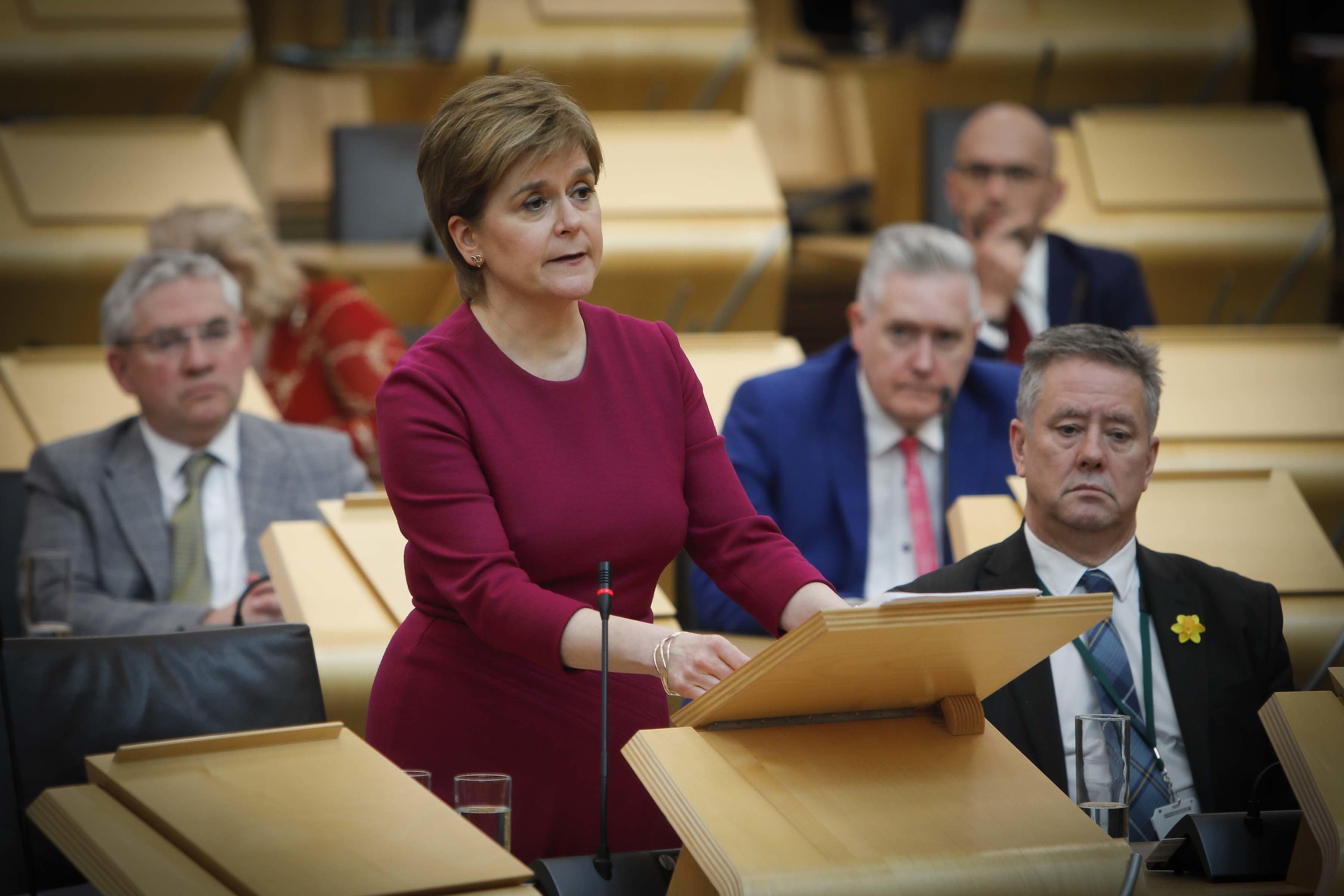Sturgeon’s emotional apology for forced adoption welcomed by campaigners
In one of her final acts as Scottish First Minister, she condemned the practice which forced women to give their babies up.

Your support helps us to tell the story
From reproductive rights to climate change to Big Tech, The Independent is on the ground when the story is developing. Whether it's investigating the financials of Elon Musk's pro-Trump PAC or producing our latest documentary, 'The A Word', which shines a light on the American women fighting for reproductive rights, we know how important it is to parse out the facts from the messaging.
At such a critical moment in US history, we need reporters on the ground. Your donation allows us to keep sending journalists to speak to both sides of the story.
The Independent is trusted by Americans across the entire political spectrum. And unlike many other quality news outlets, we choose not to lock Americans out of our reporting and analysis with paywalls. We believe quality journalism should be available to everyone, paid for by those who can afford it.
Your support makes all the difference.An emotional Nicola Sturgeon has issued a “sincere, heartfelt and unreserved” apology to the thousands of women in Scotland who were forced to give up their babies for adoption.
The apology, which the First Minister said was “long overdue”, was welcomed by all parties in Holyrood.
Campaigners have now urged other governments within the UK to follow Scotland’s lead.
In one of her final acts as First Minister, Ms Sturgeon fought back tears as she condemned a practice she said was “relatively common” until the 1970s.
It saw “many thousands of children” taken from their mothers – most of whom were young and unmarried – without consent.
The women were “forced or coerced” into adoption by charities, churches and health professionals, Ms Sturgeon said, adding that some of them suffered “physical mistreatment” while others were denied appropriate health care.
For the decades of pain that you have suffered, I offer today a sincere, heartfelt and unreserved apology
It affected an estimated 60,000 women between the 1950s and late 70s, although accurate data is not available.
Ms Sturgeon said: “The horrors of what happened to these women is almost impossible to comprehend. It is the stuff of nightmares.”
The apology came as the Scottish Government committed to around £145,000 of funding to provide those impacted with specialist support and counselling.
Ms Sturgeon assured MSPs and campaigners that her successor, who will be chosen on Monday, will uphold the commitment to continue supporting the victims.
She said: “As a Government and a Parliament, we can set the record straight.
“We can acknowledge the terrible wrongs that were done. And we can say with one voice that we are sorry.
“So today, as First Minister, and on behalf of the Scottish Government, I say directly to the mothers who had their babies taken away from them, to the sons and daughters who were separated from their parents, to the fathers who were denied their rights, and to families who have lived with this legacy: for the decades of pain that you have suffered, I offer today a sincere, heartfelt and unreserved apology.
“We are sorry.”
Following Ms Sturgeon’s speech, Conservative MSP Meghan Gallacher said that while the apology “cannot rewrite the wrongs of the past”, she hopes it will “start the healing process”.
Labour’s Jackie Baillie said the “shameful chapter in Scotland’s history” is “among the most appalling of injustices that our society has inflicted on women and their children”.
Fiona Aitken, director of Adoption UK Scotland, also welcomed Ms Sturgeon’s statement.
She said: “We’re gratified to see the First Minister acknowledge and formally apologise for the impact that forced adoption had on those involved.
“We wholeheartedly support the apology for those who had their children removed and are particularly pleased to see this extend to the individuals who were adopted through this practice, whose lifelong needs have gone unacknowledged and unsupported.
“Adoption UK now calls on other UK governments to follow Scotland’s lead in issuing a formal apology to all those who have been affected by forced adoptions, and to meet the needs of all adopted individuals who would benefit from support.”